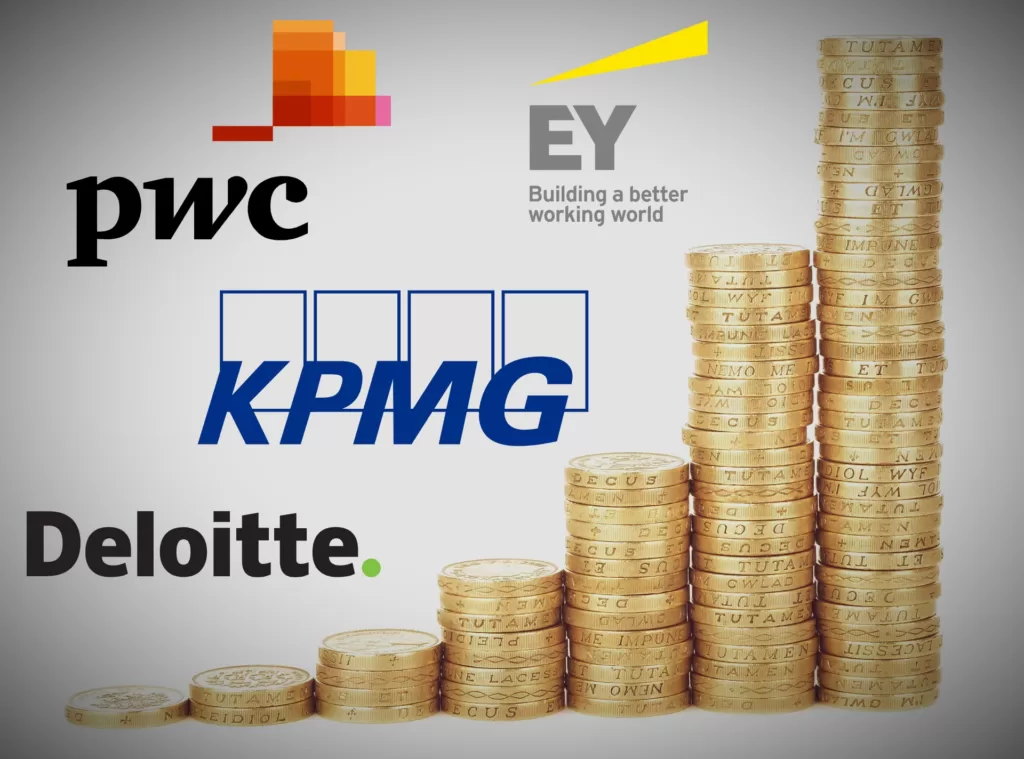The drive to privatise everything has led to consultants taking on the work of public servants. But at what cost?
 The PwC scandal in Australia highlights how the excessive use of consultants has very real implications for democratic decision-making. : Adriano via Unsplash (https://unsplash.com/photos/-hhkJV1mbxw) Unsplash Licence
The PwC scandal in Australia highlights how the excessive use of consultants has very real implications for democratic decision-making. : Adriano via Unsplash (https://unsplash.com/photos/-hhkJV1mbxw) Unsplash Licence
The drive to privatise everything has led to consultants taking on the work of public servants. But at what cost?
The controversy surrounding PricewaterhouseCoopers (PwC) has many asking whether the hundreds of millions of dollars government departments spend on consultants each year is the best use of public money.
PwC is under intense scrutiny after it was alleged the firm misused confidential government tax information for commercial gain.
It is alleged that, after the firm advised the government on tougher tax laws, it then leaked the design of those laws to its clients — many of whom would be targeted by the proposed laws.
This is not the first time these kinds of questions have been raised.
Three recent examples of this issue being explored include the Thodey review of the Australian Public Service, a 2017 Australian National Audit Office audit of Commonwealth departments’ use of consultants and contractors, and a 2014 audit by the Victorian Auditor-General’s Office.
You could be forgiven for dismissing this matter as an insider issue of public administration best left to the boffins to thrash out.
However, as the PwC scandal illustrates, the excessive use of consultants has very real implications for democratic decision-making.
Indeed, many experts argue the influx of consultants represents a shadow government that is plundering the public sector. Some go so far as to say that it represents private control over public policy.
It is therefore timely to consider why governments use consultants so much, why that might be a problem, and what we can do about it.
The consulting industry can be traced to the father of so-called ‘scientific management’, Frederick Winslow Taylor, and his cohort of ‘efficiency engineers, which included such business luminaries as Henry Gantt, Lillian and Frank Gilbreth, and Harrington Emerson. This group could be considered the first management consultants.
They were involved in advising the United States’ government on matters of efficiency, administration, or organisational design.
In the US, for example, the Hoover Commission in 1947 hired two consulting firms to provide advice on reforms to public administration. Likewise, political scientist Denis Saint-Martin has described the 1960 Canadian Glassco Commission on Government Reorganisation as ‘by far the most impressive demonstration of the influence of consultants in government’
Consultants received a massive ‘shot in the arm’ through the introduction of a bundle of reforms collectively known as the new public management. This introduced into government:
- ‘Hands on’ professional public management;
- Explicit performance measures;
- Emphasis on ‘output controls’;
- Competition in the public sector;
- Disaggregation of units in the public sector;
- Stress on private sector styles of management practice.
After its introduction, spending on consultants increased dramatically. In the UK, spending on consultants by the Department of Defence from 1993 to 2006 increased from £55 million to £256 million. Over the same period, spending by the Home Office increased from £3.81 million to £125 million — a change of 3,190 percent.
New public management was introduced in the 1980s when the economic ideas of UK Prime Minister Margaret Thatcher and US President Ronald Reagan held sway. It represented a victory of private sector ideology over the public.
The underlying logic was that the private sector knows best.
Private sector management techniques were hypothetically introduced to produce better public sector outcomes. Whether new public management has done this or not remains a heated point of debate. At the very least, it has created an environment in which consultants can thrive.
It’s also been a major contributor to the loss of expertise in government. As Professor Rod Rhodes described it many years ago, the state has been ‘hollowed out’.
As a result, governments have turned to consultants more. However, this meant that public servants were not doing the necessary work to upgrade their skills and increase their expertise. The consultants were gaining that expertise and — for a fee — providing their advice to bureaucrats.
Reliance on consultants became more and more entrenched, so now we are in a situation where consultants are seen as a ‘shadow’ public service.
The presence of consultants on its own is not a problem. Decision makers throughout the ages have turned to advisors to assist with pressing challenges. Besides, the nature of governing today is far more complex than it was even a few decades ago.
It is prudent, therefore, to turn to a range of different sources for advice — including consultants. And there are situations where very highly specialised or technical knowledge is required to support public decision-making.
While the principle of consultants being part of governing today is sound, it is the practice that is a problem.
There are four parts to this problem: definition, quantity, management and procurement.
The problem of definition relates to the public sector’s understanding of what consultants are and what they do.
There is confusion as to how consultants differ from contractors and, as a result, how best to deploy them. This issue is fundamental to the nature of work that consultants are asked to do and how governments report on the extent of consultancy spending .
It means work more appropriately classified as a contractor can be recorded as a consultancy (and vice-versa). It also means departments can pay a premium for the services of a consultant when a (much cheaper) contractor would suffice. It also might result in contractors putting up sub-standard work, thereby damaging the reputation of consultants generally.
The problem of quantity relates to how often governments use consultants.
The Victorian Auditor-General’s Office recently estimated that the current Labor Government has spent (on average) AUD$140 million on consultants each year over the past five years. If we assume that the average cost of a consulting project is AUD$100,000, then that is 1,400 consulting projects across the state government — roughly 140 per department per year.
While large, this pales in comparison to the United Kingdom’s spend: £2.8 billion worth of consulting work in 2022 alone.
The problem of quantity is not just about ‘how much’. It is also about ‘who’.
The bulk of consulting work is often awarded to the so-called ‘Big Four’ — KPMG, Deloitte, PwC and Ernst & Young. The sheer volume of work, compounded with the awarding of work to a select group of firms, suggests the government is dependent on these specific firms. One UK official even warned others about getting ‘addicted to having well trained, hard working people running around’.
The management problem relates to poor supervision of consultants.
Department officials sometimes see consulting work as ‘set-and-forget’, meaning they don’t actively manage or take ownership of the process or the results. This may result in something that is not fit for purpose, meaning additional spending might be necessary to rectify a report or unwanted outcome.
Consultants can often be put in a position of power over their clients where the client does not necessarily understand the work the consultant is doing. Ideally, a consulting project should be co-owned by the bureaucrat and the consultant.
The issue here is that bureaucrats end up defaulting to a consultant when internal staff might be more than capable of doing the work.
In addition, the insecurity of public sector work can sometimes mean consultants themselves become the keeper of institutional memory. If the right structures aren’t put in place, this can mean the expertise of the public sector is further eroded and the presence of consultants is made more necessary.
Finally, there is the problem of procurement. The traditional model assumes consulting services can be purchased just like any other good. However, the reality of purchasing consulting services is very different from, say, purchasing a piece of infrastructure. Consultants are often in relationships of co-dependency with government officials.
These relationships transcend individual transactions. However, the way in which procurement is practised often disguises these relationships, thus creating challenges in holding consultants accountable.
Accountability issues are further compounded given that consultants can often hide behind commercial-in-confidence privileges.
To address this issue we first need to rebuild the policy capacity of the public service.
Consultants should only be called in when a task requires a highly specialised form of knowledge combined with a deep understanding of, and relationships with, the specific sector.
In the short term, consultants could be required to upskill the public service in their processes and methodologies. As this research demonstrated, this does happen, though it might not be common practice.
Internal consulting divisions within the government are a possibility. Interestingly, Australia’s current Labor Government has committed to doing just that at the same time as the UK Cabinet Office is shutting its down due to lack of effectiveness.
But the real piece of work is long-term generational change.
A career path for public servants and considering policy work a genuine profession can help.
This could involve better links between the public service and universities. It could see public departments define workforce needs and talk to universities directly about how those needs can be filled. It could consider public policy knowledge a genuine form of professional knowledge in its own right — similar to law or accounting.
This is going to require several years to get right. Largely because Australia is now trying to wind back several decades of neoliberal ideology — not something that can be done overnight.
Public servants could be trained in the best ways to work with consultants. On the flip side, consultants who want to work in government services could be required to undertake a professional accreditation that demonstrates they understand the important contextual differences between the public and private sectors.
In addition, procurement rules can be updated to remove the category of ‘consulting’ altogether. It causes too much confusion. Rather, categories could be based on the type of expertise that is actually being purchased.
For instance, governments often purchase evaluation services, but ‘evaluation’ is not a recognised category in AusTender. Likewise, strategy advice or analytics are commonly-provided consulting services but are typically subsumed under the much broader category of ‘Management and Business Professionals and Administrative Services’.
These very high-level categories can obscure as much as they reveal.
The approach to procurement and the procurement rules applicable to consultants could also be overhauled to recognise the fundamentally relational — not transactional — ways in which consultants enter the public sector.
Forms of ‘relational contracting’ would be investigated to allow for more transparency in the ways consultants are used.
Consultancies could be subject to a set of ethical rules and professional standards. Consulting doesn’t ‘look like’ any other profession. There is no academic qualification, no professional standards, and no regulatory body for the profession.
In short, anybody can set up shop and call themselves a consultant. Addressing this issue would go a long way to ensuring money is spent appropriately and is providing quality outcomes to government.
There is a role for consultants to play in modern systems of government.
At the same time, a lot needs to be done to ensure that we can rein in some of the excessive public expenditure on private forms of advice.
While there are several ideas that could be implemented in the short term, the real ‘fix’ is moving away from ideologically privileging the private sector to recognise the unique value that public policy analysis and public servants can provide.
This isn’t just a structural reform but a shift in perspective and culture. We can’t unscramble the omelette, but we can certainly make it taste better.
Dr Marty Bortz is an Honorary Senior Fellow at the Melbourne School of Government at the University of Melbourne. He has worked in local and state government, and private consulting, across multiple portfolios including education, health, justice and Indigenous affairs.
Originally published under Creative Commons by 360info™.














